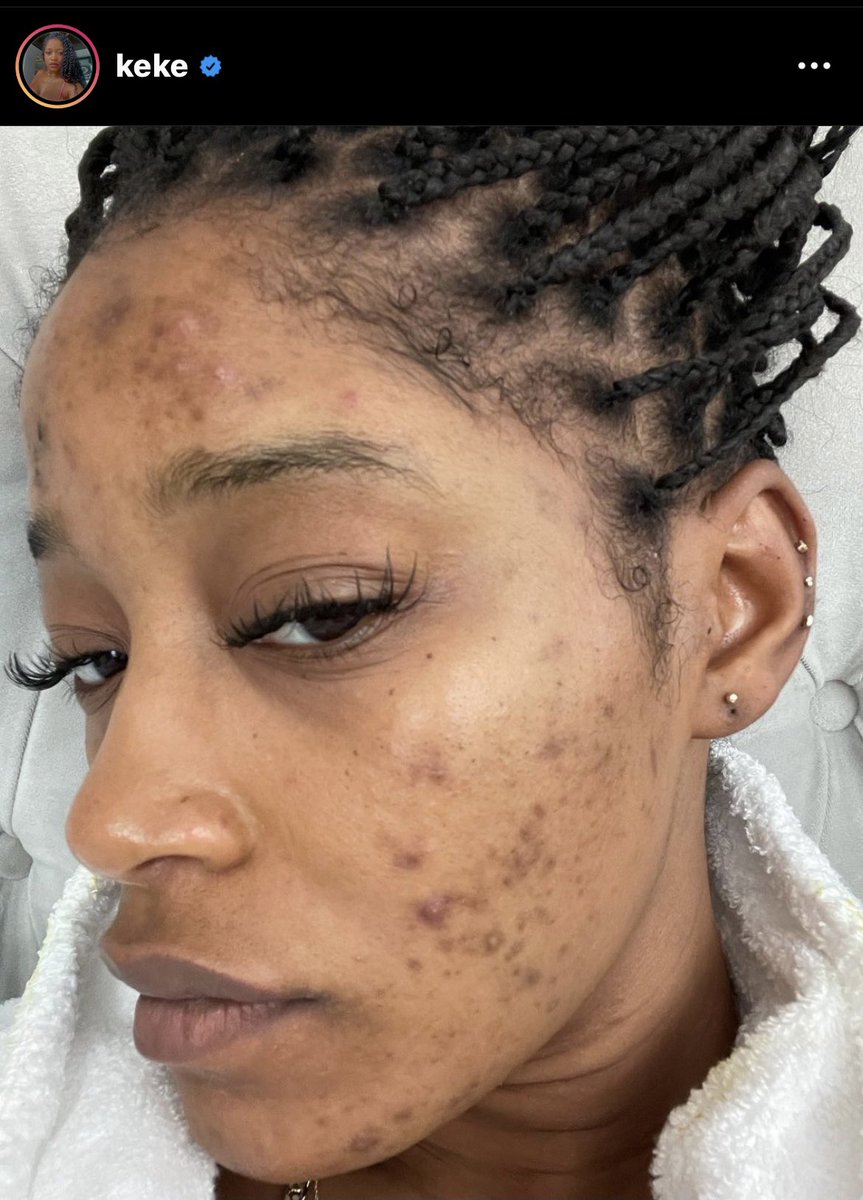Hiiii!  We took a break from skincare threads last week due to the holiday, but today we’re back and we’ll be chatting about PCOS and it’s impact on the skin. @KekePalmer was recently very transparent about how PCOS has affected her skin, and she’s not alone!
We took a break from skincare threads last week due to the holiday, but today we’re back and we’ll be chatting about PCOS and it’s impact on the skin. @KekePalmer was recently very transparent about how PCOS has affected her skin, and she’s not alone! 
 We took a break from skincare threads last week due to the holiday, but today we’re back and we’ll be chatting about PCOS and it’s impact on the skin. @KekePalmer was recently very transparent about how PCOS has affected her skin, and she’s not alone!
We took a break from skincare threads last week due to the holiday, but today we’re back and we’ll be chatting about PCOS and it’s impact on the skin. @KekePalmer was recently very transparent about how PCOS has affected her skin, and she’s not alone! 
One thing that we’ve always been big on is de-stigmatizing inflammatory conditions like acne and PIH. Majority of us will experience acne at some point in our lives, and subsequently, PIH as well. It is normal. And it is not an indication of ones hygiene.
Some people will be genetically more prone to experiencing inflammatory acne. And conditions such as PCOS that tend to be genetic can trigger acne even more. Let’s dive into how PCOS impacts our skin! But before that, we want to be clear that PCOS doesn’t only affect women. 

PCOS is an abbreviation for poly cystic ovarian syndrome. It’s a condition that is primarily impacted by hormones. It can cause symptoms like unwanted facial hair growth, weight gain, loss of hair on the scalp, irregular menstrual cycles, excessive sebum production, and acne.
When it comes to the skin, we know that hormones play a HUGE role in the condition and overall health of our skin. This is why people who experience menstrual cycles often see changes in their skin before, during, and after. It’s due to hormones.
The specific hormones that cause concerns with acne are known as androgens (testosterone). They can contribute to significant inflammation in our skin if present at elevated levels. And guess what? PCOS causes an increase in androgens. 

When our body experiences a rise in androgens, this signals our skin’s sebaceous glands to produce more oil. When our sebaceous glands become overactive, that oil can get trapped inside the follicle along with dead skin cells and bacteria, and a breakout may form in 6-8 weeks.
We’ve seen people recommend making lifestyle changes like drinking more water or “eating clean”, but this really won’t be effective at treating PCOS-related acne. This acne often requires both internal and topical drugs such as Accutane, spironolactone, and topical retinoids.
Now, because PCOS causes inflammatory acne, that means it’s also triggering our melanocytes to produce excess melanin! This is how the subsequent post inflammatory hyperpigmentation (pictured in Keke’s post) occurs.
If you have PCOS and acne, and you’re wondering how to treat the post inflammatory hyperpigmentation left behind, you can reference our hyperpigmentation thread here that goes into depth about understanding how PIH forms and how to successfully treat it: https://twitter.com/topicals/status/1245875116606656514

 Read on Twitter
Read on Twitter


